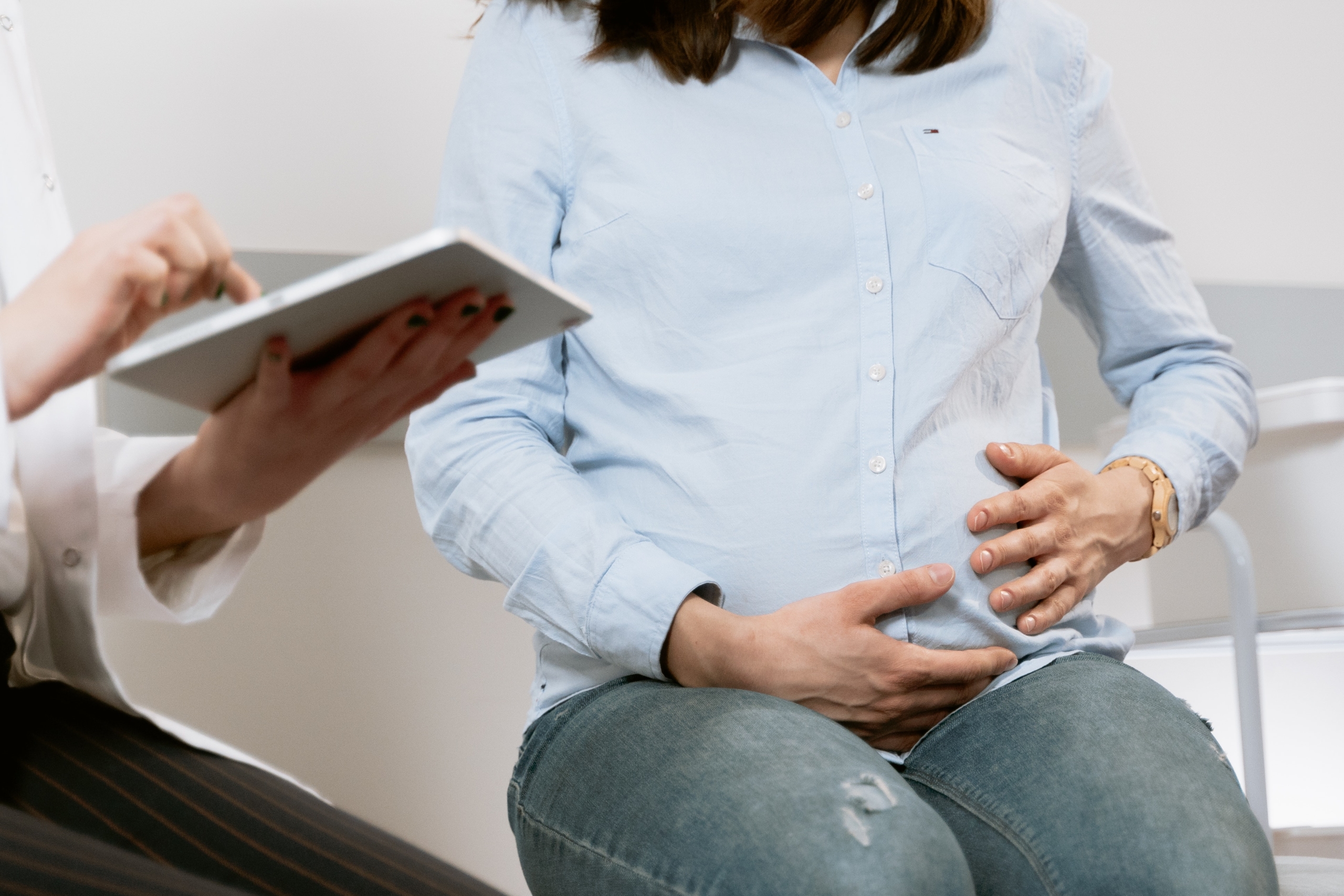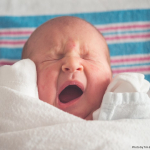A growing number of studies have indicated that psychological distress experienced by the mother — in the form of stress, anxiety, or depression — is associated with alterations in fetal brain development. These studies have been challenging to do and often rely on imaging performed after delivery; however, recent advances in magnetic resonance imaging (MRI) techniques have allowed researchers to use MRI during pregnancy to examine fetal brain development.
In a previous study from researchers at the Children’s National Hospital in Washington, DC, Wu and colleagues (2020) used these techniques to examine fetal brain development in a group of women with healthy pregnancies. They observed that stress, anxiety, or depression experienced by the mother during pregnancy — even if symptoms did not reach the severity of a psychiatric disorder — were associated with changes in fetal brain development, including decreased volume of the left hippocampus and increased cortical gyrification (folding) in the frontal and temporal lobes.
While these findings are consistent with previous research looking at the impact of maternal psychological distress on fetal development, we know much less about how these changes affect long-term neurodevelopmental outcomes in children. In a recent report, Wu and colleagues examine the association between fetal brain development and neurodevelopment at 18 months of age and determine whether fetal brain development mediates the association between prenatal maternal psychological distress and infant neurodevelopmental outcomes.
Study Population. Healthy mother-infant dyads were prospectively recruited into a longitudinal observational cohort study between January 2016 to October 2020 at the Children’s National Hospital in Washington, DC. Because this study was designed to characterize fetal brain development in healthy pregnancies over the second and third trimesters of pregnancy, the women had low-risk pregnancies and were not specifically recruited based on history of mental health issues. In addition, it should be noted that the study population was largely composed of women with high socioeconomic and professional status and without the major psychosocial stressors observed in other populations.
Measurements of Prenatal Stress. Participants completed validated, self-report questionnaires between 24 and 40 weeks of gestation to measure maternal stress (Perceived Stress Scale [PSS]), anxiety (Spielberger State Anxiety Inventory [SSAI] and Spielberger Trait Anxiety Inventory [STAI]), and depression (Edinburgh Postnatal Depression Scale [EPDS]) were completed on the same day as each MRI visit.
Fetal MRI Assessments. Using 3-dimensional, reconstructed T2-weighted MRI scans, the researchers measured fetal brain volumes and cortical folding at two time points during the second and third trimesters (between 24 and 40 weeks’ gestation). Fetal brain creatine and choline were used as a measure of brain metabolism and were quantified using proton magnetic resonance spectroscopy.
Assessment of Children and Parenting. Infant neurodevelopment at 18 months was measured using the Bayley Scales of Infant and Toddler Development III and the Infant-Toddler Social and Emotional Assessment. Parenting stress in the parent-child dyad was measured using the Parenting Stress Index-Short Form at 18 months.
The study included 97 mother-infant dyads (mean [SD] maternal age, 34.79 [5.64] years) who underwent a total of 184 fetal MRI visits (87 participants with two fetal studies each). Psychological distress in the mother was associated with several different changes in fetal brain architecture and metabolism. Maternal anxiety was associated with smaller left hippocampal volume in the fetus. Maternal anxiety and stress were also associated with increased fetal cortical gyrification in the frontal and temporal lobes. Elevated maternal depression was associated with decreased creatine and choline levels in the fetal brain.
In 18-month old children, prenatal maternal stress was associated with lower scores of infant cognitive performance. This association was mediated by fetal left hippocampal volume. Exposure to prenatal maternal stress was also associated with lower scores on measures of social-emotional performance, a finding which was mediated by the degree of fetal cortical local gyrification and sulcal depth. In addition, maternal stress, anxiety and depression during pregnancy were positively associated with parenting stress reported at 18 months.
Moving Forward
The authors note that stress-related symptoms are now recognized as the most common complication of pregnancy, affecting approximately 1 of every 4 women, including those with healthy pregnancies. While certain populations — for example, those with pregnancy complications and those dealing with more stressful living conditions — may experience even higher levels of stress, even individuals perceived to be at low risk for stress experience stress-related symptoms during pregnancy.
While the current study and previous research have documented that psychological distress experienced by the mother during pregnancy is associated with alterations in fetal brain development, the findings of this study go one step further and link alterations in fetal brain development with long-term effects on neurodevelopment. Previous studies have documented that exposure to stress during pregnancy can affect fetal development and is associated with changes in the child’s brain, including alterations in regional brain volumetric growth (e.g., amygdala, hippocampus, cerebellum, and cortical gray matter volumes), cortical folding, metabolism, microstructure, and functional connectivity. However, most of these studies were carried out in older children, so it is not possible to parse out the effects of in utero exposure to stress from other exposures occurring after birth. The strength of this study is that neuroimaging is carried out during pregnancy, so that we can rule out the impact of exposures occurring after birth on brain development and structure.
While the authors hypothesize that these changes in brain structure may predict future neurodevelopmental problems, we cannot rule out the possibility that the child is exposed to other factors after birth that contribute to worse outcomes. For example, mothers with depression during pregnancy are more likely to have postpartum depression. Exposure to stress during pregnancy may negatively affect outcomes; however, we also know that postpartum depression (in the absence of depression during pregnancy) may also negatively affect children’s cognitive and socioemotional development.
Future studies are needed to better understand the connections between early exposure to stress and alterations in children’s neurodevelopment and subsequent vulnerability to neurodevelopmental problems. And importantly we need to look at outcomes in more racially and socioeconomically diverse populations so that we can better understand the relationship between other types of adverse exposures and child neurodevelopment.
This study raises concerns, but it also points to opportunities for intervention. Would strategies designed to decrease stress during pregnancy have a positive impact on child neurodevelopment? Rather than waiting for social-emotional or cognitive problems in children to arise, could we institute interventions after birth that promote cognitive and social-emotional development? The authors note that identifying biomarkers at (or even before) the time of delivery associated worse neurodevelopmental outcomes may assist in developing early targeted interventions which mitigate the effects of prenatal exposure to stress.
Ruta Nonacs, MD PhD
Wu Y, Lu YC, Jacobs M, et al. Association of Prenatal Maternal Psychological Distress With Fetal Brain Growth, Metabolism, and Cortical Maturation. JAMA Netw Open. 2020;3(1):e1919940.
Wu Y, Espinosa KM, Barnett SD, Kapse A, Quistorff JL, Lopez C, Andescavage N, Pradhan S, Lu YC, Kapse K, Henderson D, Vezina G, Wessel D, du Plessis AJ, Limperopoulos C. Association of Elevated Maternal Psychological Distress, Altered Fetal Brain, and Offspring Cognitive and Social-Emotional Outcomes at 18 Months. JAMA Netw Open. 2022 Apr 1;5(4):e229244. Free PMC article.







Leave A Comment